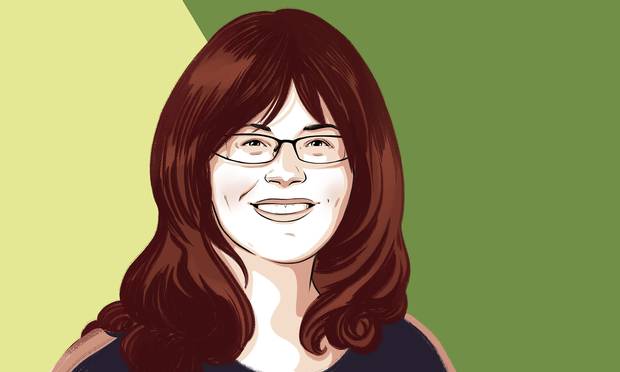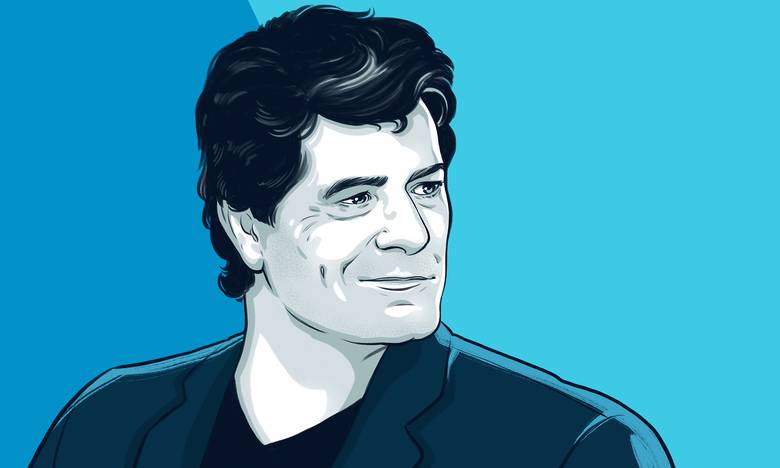Leah Lawrence is touring a shop in Calgary that sells limited-edition guitars, many of them handcrafted in Canada.
For even a recreational player such as Ms. Lawrence – chief executive officer of Sustainable Technology Development Canada, the federal Crown corporation that funds promising environmental technology – it's easy to be drawn in by the craftsmanship and artistic details of the instruments. She has agreed to meet at Kickaxe Guitars, rather than the more conventional restaurant setting for this feature.
She asks Jay Kee, Kickaxe's proprietor, to explain the finer points of a Quebec-made acoustic-electric hybrid model. He walks her through the technology that ensures the neck stays straight and the electronics are neatly hidden inside the body. She plays a few chords on another, a straight acoustic one. It sounds bright.
When not at work in Ottawa, leading an agency now in the spotlight following the country's climate-change commitment in Paris, Ms. Lawrence finds respite playing classic rock tunes on her own electric guitar. Lately, she's been working on a number by Poison, the 1980s-era hair metal band. Connections between SDTC's quest for clean-tech breakthroughs and musical-instrument innovations are closer than you might imagine, she says.
"I think it's the beauty of the idea. We just learned all about Canadian technologies in the guitar. How they're leading in different ways globally," she says as she strums. "There's an appreciation of how it comes together and delivers magic."
An industrial engineer and economist by training, Ms. Lawrence has been at the helm of SDTC for a little more than a year. Its mission is to seek out early-stage technology in energy, water treatment, carbon reduction and other fields, then put a portion of the funding in place behind the developers so they can commercialize their ideas. Over the past 15 years, SDTC has funded about a third of the clean technology developed in Canada. That's about $1-billion directed to 320 projects.
Now, though, the push to incubate a few Canadian clean-tech versions of Tesla Motors or Apple Inc. has been amplified.
Since Ms. Lawrence took over as CEO in mid-2015, Prime Minister Justin Trudeau's Liberals have come to power, promising a new era when it comes to the environment. Mr. Trudeau has pledged to make Canada a leader in the fight against climate change, partly by harnessing the country's brain power. It came into sharp focus following the United Nations' COP21 climate-change summit in Paris last year, where Canada committed to an ambitious goal of reducing carbon emissions by 30 per cent from 2005 levels by 2030. He pledged to work closely with the provinces to do it.
In a subsequent meeting with Canada's premiers, Ottawa set up working groups, including one that focused on innovation, jobs and clean technology in which SDTC is a participant. It had already worked closely with Alberta's Climate Change and Emissions Management Corp. to co-ordinate efforts to cut greenhouse gases in the oil sands and other energy developments. Under Alberta Premier Rachel Notley, the province is also aiming for environmental breakthroughs as her New Democratic Party government proceeds with its emission-reduction policies, which include a cap on greenhouse gases from the oil sands.
Now, expectations are high for breakthroughs and commercial routes to get them to market. Some companies in the SDTC stable are poised to get there, Ms. Lawrence says.
"We have a significant critical mass of companies that might be on the verge [of commercial success]," she says. "So what the new policies and the federal government and provincial governments are focusing on is how to accelerate the scale-up of those ideas, those technologies."
The agency is now backing 120 companies, including some that are employing information technology, such as net metering – systems that allow customers to sell surplus renewable energy back to a utility – and smart-grid inventions. Many of those are located in the Ottawa-Toronto-Waterloo, Ont., high-tech triangle. They include Solantro Semiconductor Corp., which makes power-processing chip sets for the solar industry, and Morgan Solar Inc., which has developed highly efficient photovoltaic panels. The latter recently garnered $10-million in private equity funding from ArcTern Ventures.
An array of 80-watt solar panels on a tracking system at Morgan Solar’s Toronto facility in 2015.
Fred Lum/The Globe and Mail
Ms. Lawrence refers to such players as racehorses. There are also warhorses – innovations aimed at improving the performance of traditional energy industries in Alberta, British Columbia and elsewhere.
They include Pure Technologies Ltd., which develops high-tech leak-detection devices for utilities, and oil sands producer MEG Energy Corp., developer of a field upgrading plant designed to cut greenhouse gas emissions by 20 per cent compared with conventional bitumen processing. The idea behind these is to move traditional sectors into a new, low-carbon era.
When SDTC uncovers a promising innovation, it typically funds a third of the development costs, with provincial sources and venture capitalists providing the remainder. In fact, Ms. Lawrence says the corporation's involvement has now become a seal of approval for other financiers to get involved.
"Our money usually helps what would otherwise be a challenged investment – from a rate-of-return perspective in the private sector – meet the hurdle."
The Alberta-born, Saskatchewan-raised executive is no newcomer to the nexus between environment and business, having first worked in solar generation for remote oil and gas sites. She did her master's thesis studying stock-market returns for companies that made environmental investments. In Calgary in the 1990s, the era of the Kyoto Protocol, she made some of the country's first emissions trades. It was a heady time, but it took years for real action dealing with climate change to translate into major business opportunities.
"I had the privilege of working with a lot of companies across the country and consortia to think about what that would look like in the absence of policy and regulation, so it was a very creative time," she says. "The evolution of public policy just took a little longer than we expected back then."
Besides music, Ms. Lawrence has an affinity for motorcycles. She and her partner, Chris Biegler, take long trips on their BMW bikes, a hobby they picked up when they lived in Calgary. She was recently preparing to motor down to a gathering of enthusiasts in the Adirondacks in New York State.
Motorcycling and music force her to take her mind off the future – her usual stock-in-trade – to concentrate, however briefly, on the moment, which is important, she says.
"Guitar, for me, is really an escape. I usually don't play for anybody else unless somebody's little girls beg me, which they occasionally do. It's about being able to separate from the challenges of the day to day," she says. "When you come back, your mind's refreshed and you can see things in a different way."
Seeing things from a fresh perspective will be a necessity as Canada's clean tech sector prepares for performance on the climate-change front.

